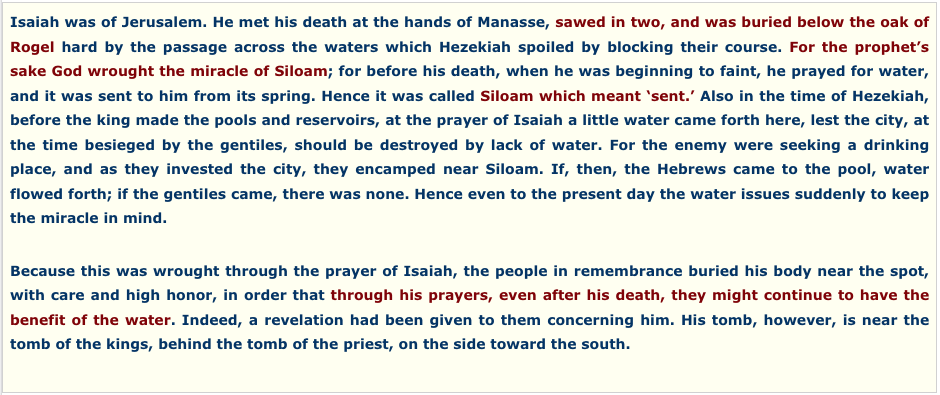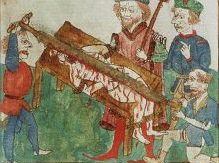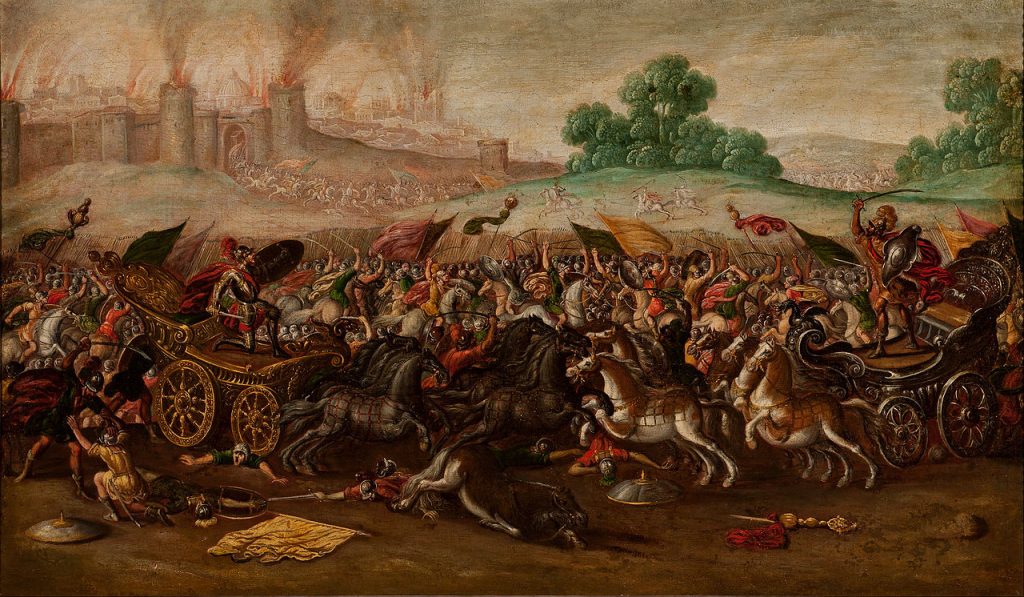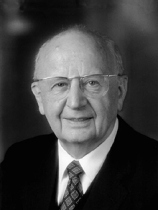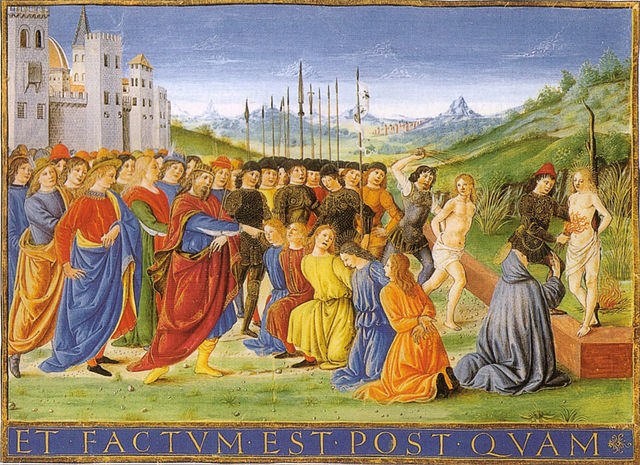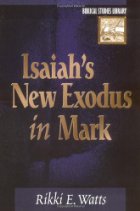In the Lives of the Prophets, a Jewish work from as early as the first century that has been supplemented with Christian additions, we read of the death of Isaiah:
The image captured the imaginations of medieval manuscript decorators:
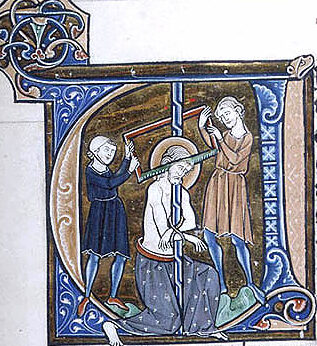
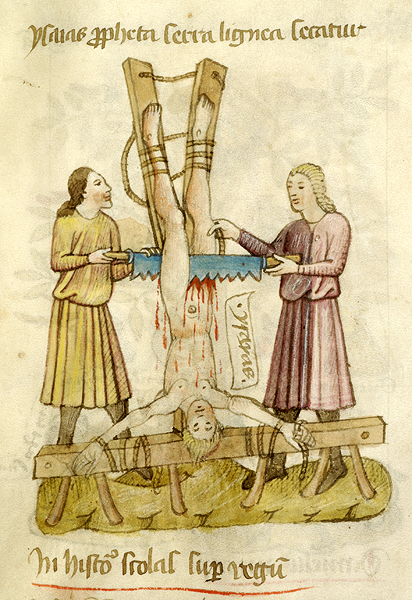
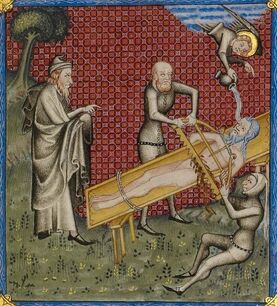

There remains the problem, of which the reader must by now be thoroughly aware, of how a saint and, for that matter, a Jewish prophet, came to be imagined as having died by the extraordinary process of being sawed in two. Even granted that the Middle Ages liked its tales of martyrdom gory and sensational, one cannot help but feel that to saw a man in two is not only cruel, but also unusual and impractical. Other motives besides a preference for the excessive seem required to explain the choice of an instrument of torture which is almost without parallel in the long catalogue of Christian and Jewish suffering. — Bernheimer, 21

